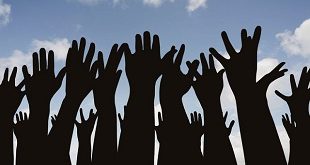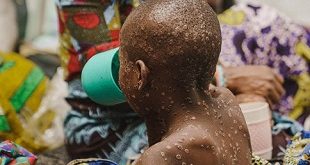These attitudes would be a sad but minor inconvenience if they were restricted to those who think about Africans this way. The fundamental problem is that they are most dominant among us African elites. We have been bombarded with the images of our incompetence, inferiority, and helplessness daily – and we seem to have succumbed to them. Any attempt to fight this image will be met with claims that such an African supports local dictators or corruption. Therefore, the first line of defence of these stereotypes are African elites themselves. The second will be western intellectuals, journalists and diplomats who will claim “you are exaggerating” the issue.
As these images are played out, another image appears on the horizon – the “international community” coming to our rescue. This will be a kind relief aid worker, volunteer doctor, an altruistic human rights campaigner who will have “sacrificed” the comfort of his Beverly Hills lifestyle to come to our rescue (in Darfur).
I was previously blind to the import of these images of Africa and their racist undertones until I lived in America – once in California and later in New Haven. In either case, I lived in a rich (read white) neighbourhood – the roads are well paved, the sidewalks done, the houses neat, the fountains work, the streets are lit at night etc. Just across the street is a poor (read black) neighbourhood – the roads filled with potholes, pavements broken, ramshackle houses. The police would stoke the neighbourhood every evening looking for black male youth to arrest for using or dealing in illegal drugs.
Why does the city council pave roads in the white neighbourhood but ignore the black neighbourhoods? Through discussions with friends, I was told black people do not show up at town council meetings, don’t vote and have therefore been politically excluded from public services. But why have they developed this self-destructive behaviour? It sounded abnormal. I would see politicians and preachers, both black and white, on American television castigating blacks for lacking “personal responsibility” hence their condition. I became critical of black culture, accusing African Americans of self-destructive behaviour as Barrack Obama does.
Over time, I began listening to African Americans rather than arguing with them. They referred me to books and research studies that have been done about the crisis of the black man in America. What I stumbled upon began a sobering journey of reflection. It became clear to me the “truth” is created. One truth in America that I took for granted was that gangster culture was among blacks because of trade in drugs. Yet statistics showed that white people in America are 13 times more likely to use drugs than black people. That notwithstanding, 78 percent of drug arrests are of black people. In Georgia, 98% of all people sentenced to death for drug related crimes are black. In New Jersey blacks are only 15 percent of drivers on its highways. Yet they constitute 46% of all traffic stops by cops and 76% of arrests.
Here was the puzzle: as an avid reader/viewer of the American press, I had never seen mass abuse of black people as an issue in the mainstream media. The media was always awash with self-congratulatory news about the greatness of the US. Black incarceration was only highlighted as a fringe issue. Civil rights advocates like the Reverend Al Shapton were often brought in only as comic figures fighting for an issue that had been settled. Nowhere in the news did I hear or read that up to 30% of adult African American males were in jail and that there were more black males of college going age in jail than college.
Leaving the worst injustices on black people in America, I returned to Africa to find white American journalists in the thick of a struggle for freedom on our continent. I would meet white human rights activists working to save the people of Rwanda, Zambia or Kenya from their “brutal and corrupt” governments. I would feature on TV and radio debates on BBC or CNN with white academics from America fighting for our democracy. I began to wonder why all these passionate defenders of our aspirations for freedom are silent about the freedom of their fellow black citizens at home.
Anderson Cooper who goes to Congo or Haiti to make special reports about the suffering of the people there has never done one special feature in a black ghetto in America. The US has the largest prison population in the world – even more than China- but the colour of prisoners is never an issue in the American media. The media were telling the truth and nothing but the truth, but they were not telling the whole truth.
Slowly, reluctantly, I began to re-examine my views about Africa and how I presented them as a journalist and publisher. Perhaps we consume ourselves with too much negative reporting (all true) to almost complete exclusion of our achievements. The constant barrage of news about failure makes us hate ourselves. We have no examples of our achievements – so we think we need others to liberate us.
I had been writing a book on aid to Africa and its effects. Then I found an agent and a publisher to work with. As we discussed the content of the book, I was shocked by what he told me: I had to be bold on how I presented Africa. He even suggested a title: stop aid now: how American (or western) assistance sustains corrupt and brutal regimes in Africa.
My agent was a smart and practical marketing man – no racist at all. He knew which batons to touch in order to sell a book about Africa in the West. I understood his point of view. But I did not agree with it. It was clear that to sell something about Africa in America and Europe one has to feed the prejudices. I had met this reality with many of my friends from Europe and North America covering Africa for international news media. Each time there was a good story, they told me their editors would not like it. But each time a famine struck a country, an epidemic ravaged a village, a war engulfed a town, a ritual murder was reported in an area, a warlord massacred people etc, my friends would hit the headlines across Europe and North America. I was not going to promote this narrative.
Racial bias shapes the news which reproduces and sustains racial bias in a circular flow of conscious and subconscious racism. It took me longer to reflect on this dynamic and even longer to begin changing my mind about how I, as an African journalist, need to go about my work. I am still reflecting and learning… But one lesson is clear: even in covering Africa’s failures, we should at least provide context.
amwenda@independent.co.ug
 The Independent Uganda: You get the Truth we Pay the Price
The Independent Uganda: You get the Truth we Pay the Price



